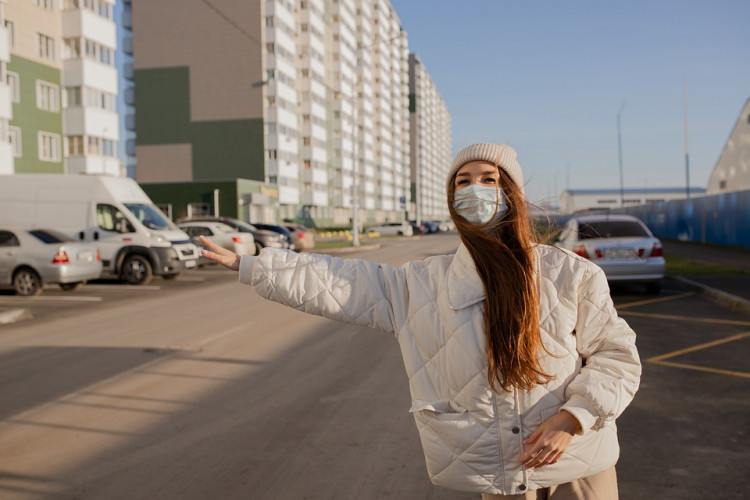Nassau County, New York, has become the first jurisdiction in the United States to pass a law banning the use of face masks in public spaces, a move that has ignited a heated debate over public safety, civil liberties, and the potential for discriminatory enforcement. The new legislation, known as the Mask Transparency Act, was signed into law on Wednesday by Nassau County Executive Bruce Blakeman, a Republican, who framed the measure as a necessary tool to combat crime and enhance public safety.
The Mask Transparency Act makes it a misdemeanor for individuals to wear a face covering that obscures their identity in public, with violators facing up to a year in jail and a $1,000 fine. The law includes exemptions for those wearing masks for health, religious, or cultural reasons, but it has nonetheless sparked significant controversy among civil rights advocates, local politicians, and community groups.
Blakeman, a vocal supporter of former President Donald Trump, has defended the law as a means to address rising crime rates in the county, particularly in the context of masked individuals committing acts of theft, harassment, and violence. "What we're seeing is a lot of people were going into stores wearing a mask, shoplifting. And then it was very difficult to apprehend them because we didn't have an ability to identify them," Blakeman told Fox News Digital. He emphasized that the law targets individuals who use masks to conceal their identities while engaging in criminal activities, regardless of their race or background.
However, critics argue that the law is a thinly veiled attempt to suppress dissent and target specific groups, particularly in the wake of recent pro-Palestinian protests in New York City. Susan Gottehrer, regional director of the Nassau County New York Civil Liberties Union, described the mask ban as "a dangerous misuse of the law to score political points and target protestors." She warned that the legislation could lead to selective enforcement, doxxing, and retaliation against those who exercise their right to protest while protecting their identities.
New York State Senator Iwen Chu also voiced concerns about the potential for the law to fuel anti-Asian sentiment, noting that wearing masks is "a common practice in many Asian cultures" as a societal measure to prevent the spread of health crises. "Legislation like this may lead to anti-Asian hate and discrimination towards the mask-needed population due to health, culture, and religious reasons," Chu stated.
The Mask Transparency Act was introduced by Republican legislator Mazi Pilip, who cited a rise in antisemitic incidents as a key motivation for the bill. Pilip argued that the law would help protect Jewish communities from masked individuals who engage in acts of intimidation and violence. "Terrorist supporters around the country and especially in New York are hiding behind the mask and terrorizing the Jewish community," Pilip said.
The bill passed the Republican-controlled Nassau County Legislature on August 6, with a vote that fell along party lines. Democratic legislators, who largely opposed the measure, expressed concerns about its potential impact on First Amendment rights. Arnold Drucker, a Democratic legislator, criticized the law as an overreach that could have "detrimental" effects on citizens' constitutional freedoms.
The public response to the mask ban has been equally divided. A public hearing on August 5, which was held to discuss the bill, drew a significant number of protesters, one of whom was arrested after being removed for disrupting the proceedings. Despite the controversy, Blakeman and other supporters of the law remain steadfast in their belief that it is a necessary step to ensure public safety.
Blakeman further defended the law by stating that police officers would be trained to exercise discretion when enforcing it, ensuring that only those suspected of engaging in criminal activities would be questioned. "This is a question of people who wear masks to engage in violent acts, to engage in harassment, to shoplift, to rob banks. Those are the people we want to stop," Blakeman explained. He added that the law is not intended to target individuals based on their appearance but rather on their behavior.
The New York Civil Liberties Union (NYCLU) has vowed to monitor the implementation of the law closely, expressing concerns that it could lead to abuses of power and the erosion of civil liberties. "Masks protect people who express political opinions that are unpopular," Gottehrer emphasized. "Making anonymous protest illegal chills political action and is ripe for selective enforcement."




